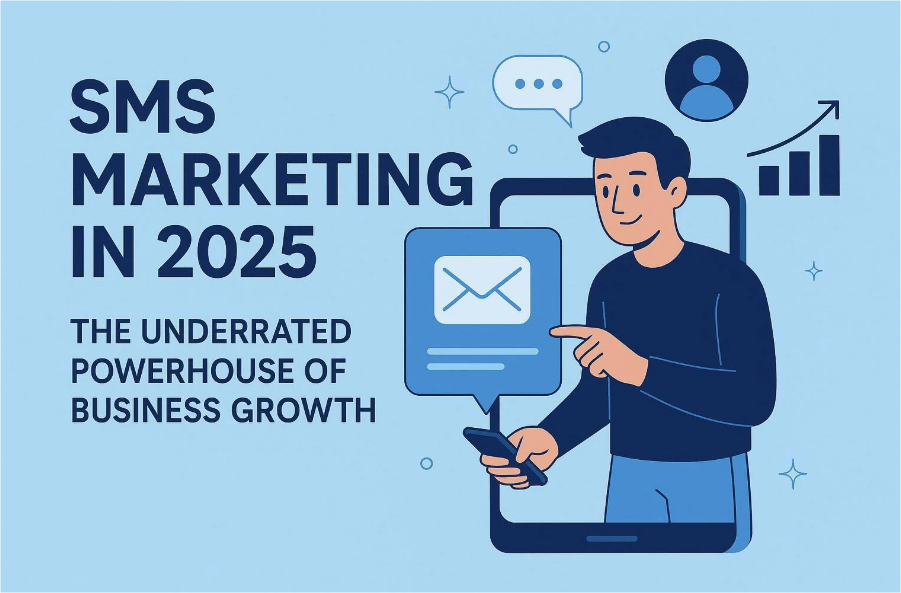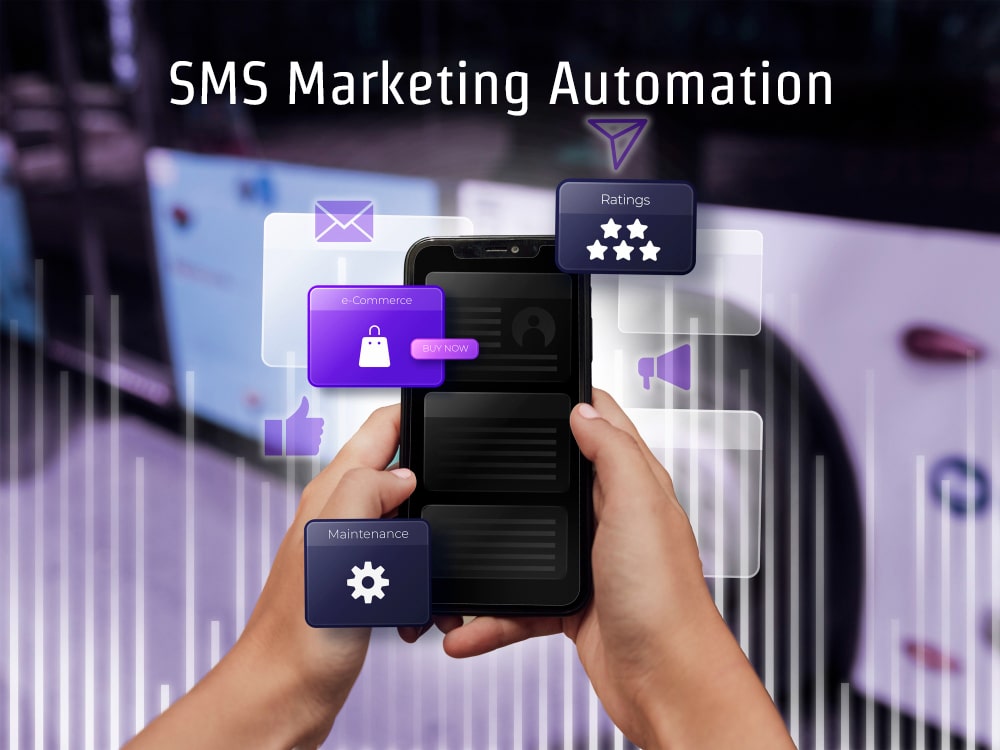📑Table of Contents:

Text messaging has become one of the strongest marketing channels in 2025. What once started as a simple way to send reminders or updates has now evolved into a primary tool for engagement, sales, and customer loyalty. Today, brands that ignore SMS are losing opportunities to connect with their audience in real time.
Mobile devices dominate our lives. People carry them everywhere, check them constantly, and rarely go more than a few minutes without glancing at a screen. Because of this, text messages have an unmatched level of visibility. Open rates often exceed 95%, and response times are faster than email or social media. In a fast-moving world, SMS delivers speed, simplicity, and certainty.
Why SMS Marketing Still Matters in 2025
Consumers want instant communication. They don’t have patience for long emails or cluttered feeds. A text message cuts through the noise and lands right where people are already looking—their phones. Unlike email, which may sit unread, or a social post that disappears in a crowded timeline, SMS commands immediate attention.
More importantly, texting feels personal. A short message sent to someone’s phone creates a sense of urgency and connection. That’s why businesses across industries have shifted budgets to SMS campaigns. Retailers, healthcare providers, nonprofits, and even schools are all using text messaging to reach their communities.
Personalization Redefined
In 2025, personalization is no longer optional. Customers expect brands to know their preferences and deliver relevant messages at the right time. Text messaging makes this possible.
For example, an online fashion retailer can send a text featuring a discount on the exact product a customer browsed earlier in the week. A fitness studio can remind members of upcoming classes they usually attend. A restaurant can text out a dinner promotion during evening hours, when people are already thinking about meals.
AI tools have made personalization even stronger. By analyzing customer behavior, AI predicts what people want and when they want it. Messages feel less like marketing and more like recommendations from a trusted source. This builds loyalty and drives higher conversions.
SMS Across Multiple Industries
Text messaging is flexible. Businesses in every sector are finding ways to use it.
- Retail & E-commerce: Brands send flash sales, order updates, and personalized offers. SMS also reduces cart abandonment with real-time reminders.
- Healthcare: Clinics and hospitals rely on text reminders for appointments, prescriptions, and wellness check-ins. Patients appreciate the simplicity.
- Education: Schools and universities use SMS to notify parents and students about closures, deadlines, and events.
- Nonprofits: Charities run donation drives with direct links in text messages. Supporters respond quickly because of the immediacy.
- Churches & Ministries: Faith groups share prayer chains, service updates, and community messages through SMS. It keeps members connected outside of traditional gatherings.
- Hospitality & Travel: Hotels send check-in reminders, booking confirmations, and personalized offers to guests. Airlines use SMS for flight updates and schedule changes.
Each of these examples shows how versatile SMS has become. No matter the industry, there’s always a way to use text messaging to enhance communication.
Compliance and Building Trust
With such powerful reach, there must also be responsibility. Regulations like the Telephone Consumer Protection Act (TCPA) exist to protect consumers from unwanted messages. Businesses must get proper consent before sending promotional texts. They must also provide clear opt-out instructions so customers can stop receiving messages anytime.
These rules build trust. When customers know a brand respects their privacy, they are more likely to engage. A company that values consent and sends relevant messages will see better results than one that spams. In 2025, ethical marketing is not just good practice—it’s good business.
Integration With Omnichannel Marketing
SMS is strong on its own, but it becomes even more powerful when part of an omnichannel strategy. Customers today move across platforms constantly. They might ignore an email, scroll past a social ad, but instantly open a text.
Consider a marketing journey: A customer receives an email about a seasonal sale. If they don’t open it, a personalized SMS follows hours later with a direct link. That simple nudge often drives them to act.
Marketers now combine SMS with email, web push notifications, mobile apps, and even conversational chatbots. This integration ensures customers receive consistent and timely messages across every touchpoint. It also creates a seamless experience that feels personal rather than intrusive.
Conversational SMS Marketing
One of the biggest changes in 2025 is the rise of two-way texting. Instead of sending one-way promotions, brands now use conversational SMS to interact with customers in real time.
For instance, a customer who receives a text about a product can reply with questions and get instant answers. Chatbots powered by AI handle most of the conversation, but they also escalate to human agents when needed. This blend of automation and personalization creates deeper engagement.
Two-way SMS also provides valuable data. Every response helps brands understand customer intent and preferences. This insight fuels future campaigns, making them even more relevant.
Case Studies: Real-World Success
- Retail Example: A major clothing chain used SMS reminders for abandoned carts. Within 48 hours, they recovered 20% of lost sales, proving the effectiveness of simple follow-ups.
- Healthcare Example: A local clinic reduced no-show appointments by 35% after sending text reminders 24 hours before visits. Patients felt cared for and more engaged.
- Nonprofit Example: A charity raised thousands in a single weekend by sending a donation link via SMS during a live fundraising event. Supporters acted immediately.
These results highlight why SMS continues to outperform many traditional channels.
The Future of SMS Marketing
Looking forward, SMS will become even smarter. AI will deliver hyper-personalized recommendations in real time. Integrations with mobile wallets will make payments seamless. Two-way texting will blur the line between marketing and customer service.
We’ll also see SMS play a larger role in customer loyalty programs. Imagine receiving a text that confirms your rewards balance and offers a discount for your next purchase—all personalized to your history. That type of convenience keeps customers coming back.

Final Thoughts
In 2025, text messaging marketing stands at the center of customer engagement. It’s fast, personal, and effective. Businesses that embrace SMS can connect with customers in ways that feel natural and human. Those that fail to adapt risk falling behind.
The lesson is clear: SMS is no longer just an option—it’s a necessity. Companies that combine personalization, compliance, and omnichannel strategies will unlock the full power of text messaging marketing.
